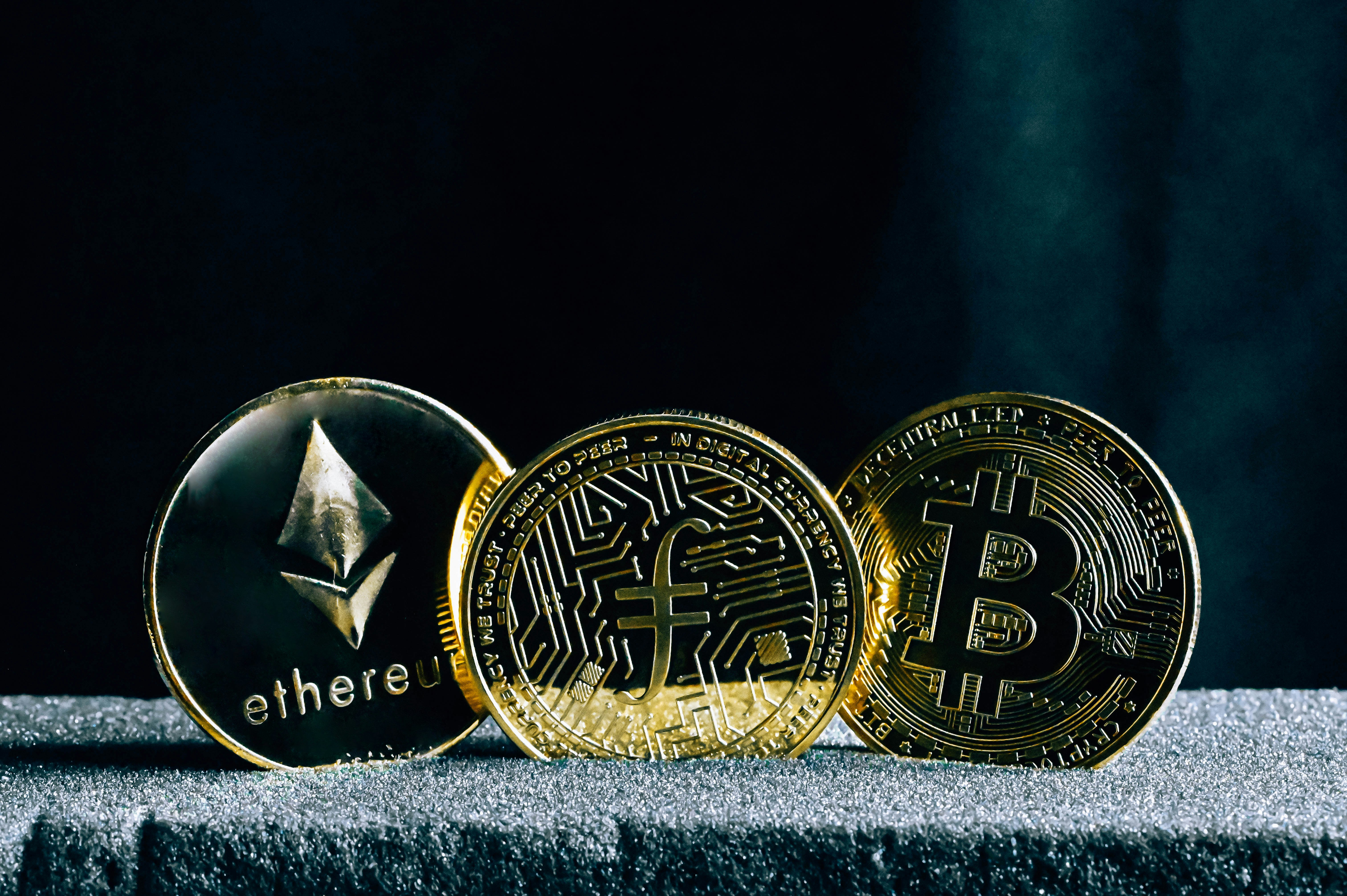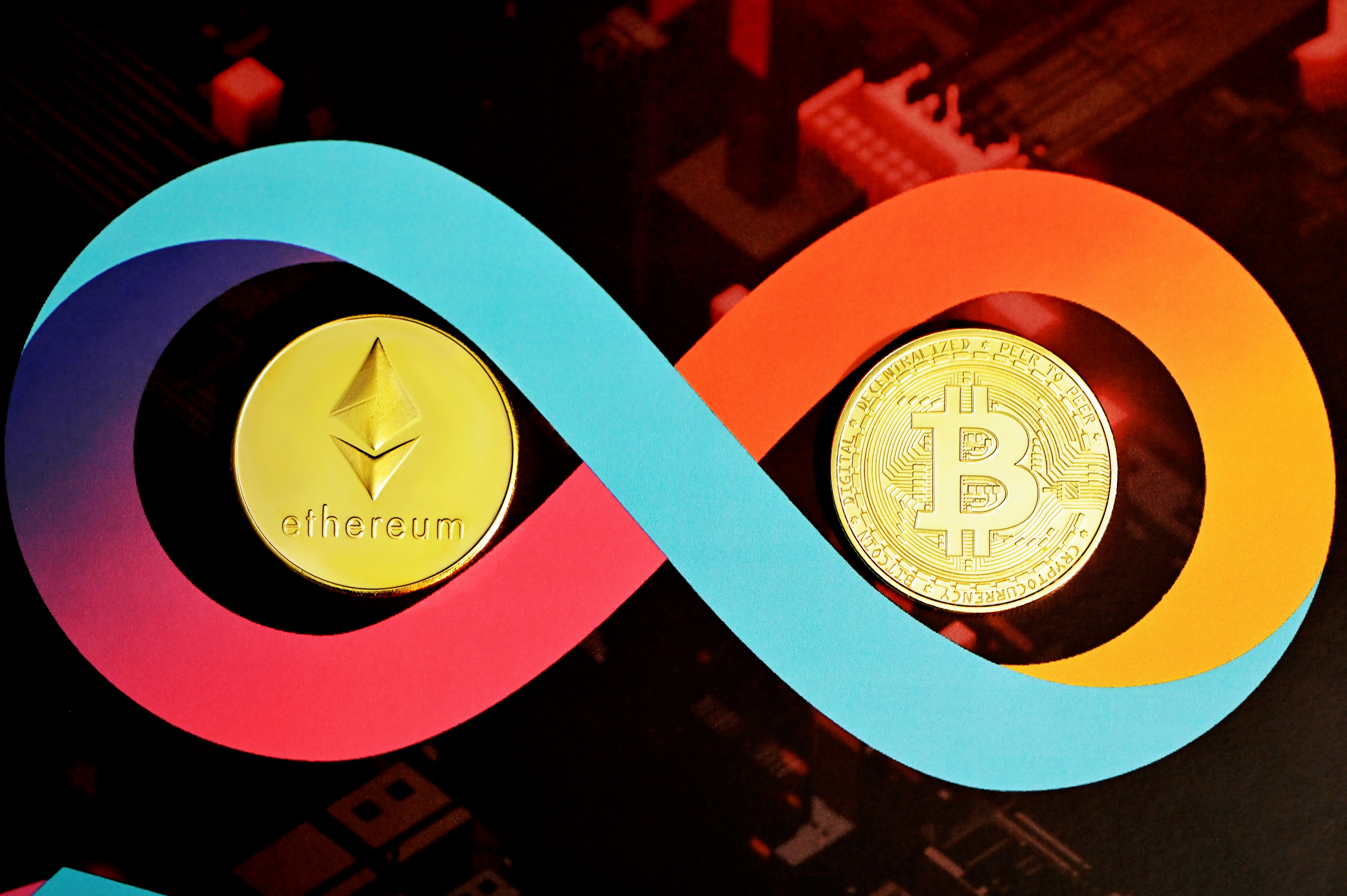If you’ve ever wondered about the potential of investing in altcoins, look no further. This article will offer an insightful glimpse into the risks, rewards, and predictions for the future of altcoin investments in 2023. Whether you’re a seasoned investor or just dipping your toes into the cryptocurrency market, understanding these factors will help you make informed decisions and potentially reap the benefits in the ever-evolving world of altcoin investments.
Understanding Altcoins
Altcoins, short for alternative coins, refer to cryptocurrencies other than Bitcoin. While Bitcoin is the first and most well-known cryptocurrency, there are thousands of altcoins available in the market today. Understanding altcoins is essential for anyone interested in cryptocurrency investments.
Definition
Altcoins are digital currencies that aim to provide alternatives to Bitcoin. They are built on various blockchain platforms, each with its unique features and purposes. Altcoins offer different functionalities, such as smart contracts, faster transaction times, enhanced privacy, and more. These cryptocurrencies have their own blockchain networks, independent of Bitcoin’s decentralized ledger.
Difference between Altcoins and Bitcoin
While Bitcoin is considered the gold standard of cryptocurrencies, altcoins provide alternative options with distinct features and use cases. One significant difference between altcoins and Bitcoin is their development team. Bitcoin’s development is overseen by its anonymous creator, Satoshi Nakamoto, and maintained by a decentralized community. In contrast, altcoins have their own development teams, often with more transparent identities.
Another difference is the underlying technology used by altcoins. Bitcoin utilizes the Proof-of-Work (PoW) consensus algorithm, while many altcoins leverage different consensus mechanisms, such as Proof-of-Stake (PoS) or Delegated Proof-of-Stake (DPoS). These alternative algorithms aim to address scalability, energy consumption, and decentralization concerns.
Types of Altcoins
Altcoins can be classified into various categories based on their characteristics and intended purposes. Some common types of altcoins include:
Utility Tokens: These altcoins are designed to provide access to certain products or services within a blockchain network. Examples include Ethereum’s Ether (ETH) and Binance Coin (BNB).
Security Tokens: These altcoins represent ownership rights to an underlying asset, such as real estate or company shares. Security tokens are subject to regulatory compliance and often involve stricter legal requirements.
Privacy Coins: Privacy-focused altcoins aim to provide enhanced anonymity and privacy features by obscuring transaction details and user identities. Examples include Monero (XMR) and Zcash (ZEC).
Stablecoins: Unlike other volatile cryptocurrencies, stablecoins are pegged to stable assets like fiat currencies or commodities. They offer price stability and are often used as a medium of exchange or a store of value. Tether (USDT) and USD Coin (USDC) are popular examples.
Platform Coins: Altcoins that serve as the native currency of a particular blockchain platform fall under this category. Ethereum’s Ether, for example, is used to power the execution of smart contracts and decentralized applications (dApps).
Understanding the different types of altcoins is crucial for evaluating their potential rewards and risks in the cryptocurrency market.
The Potential Rewards of Investing in Altcoins
Investing in altcoins can offer enticing rewards for investors who understand the market dynamics and navigate it wisely.
Higher Returns
One of the significant potential rewards of investing in altcoins is the possibility of higher returns compared to more established cryptocurrencies such as Bitcoin. Since altcoins are often in their early stages of development, they have the potential for substantial price appreciation. Successful projects can experience exponential growth, leading to significant profits for early investors.
Moreover, altcoins that introduce groundbreaking technologies or address critical industry challenges may attract attention and investment, driving up their value. Investors who identify promising altcoins in their early stages can potentially buy at lower prices and reap higher returns as the projects gain traction.
Portfolio Diversification
Another advantage of investing in altcoins is the opportunity to diversify your investment portfolio. While Bitcoin has undoubtedly gained mainstream recognition and is often considered a relatively safer investment, altcoins can offer exposure to different sectors and technologies within the crypto space.
Diversification is a sound investment strategy that helps mitigate risks by spreading investments across different assets. By including altcoins in your portfolio, you can potentially reduce the impact of any adverse price movements in a single cryptocurrency. This diversification strategy allows you to take advantage of opportunities in different segments of the cryptocurrency market.
The Risks of Investing in Altcoins
While there are potential rewards to investing in altcoins, it is crucial to understand and evaluate the associated risks.
Market Volatility
Investing in altcoins carries a higher level of risk compared to more established assets. The cryptocurrency market, including altcoins, is known for its high volatility. Prices can experience significant fluctuations within short periods, potentially leading to substantial gains or losses.
Some altcoins may exhibit price volatility due to low liquidity and market manipulation. Investors must be prepared for rapid and unpredictable price movements, as they can significantly impact investment returns. Due diligence, risk management, and setting realistic expectations are critical when dealing with volatile altcoins.
Lack of Regulation
Another risk factor associated with altcoins is the lack of regulatory oversight and clarity. Unlike traditional financial markets, the cryptocurrency industry is still in its nascent stage, often operating within a regulatory gray area. While this lack of regulation may provide opportunities for innovation and growth, it also exposes investors to potential scams, fraud, and market manipulation.
Investors should have a thorough understanding of the regulatory landscape in their respective jurisdictions and exercise caution when investing in altcoins. Regulatory changes or crackdowns on specific cryptocurrencies or exchanges can have a significant impact on altcoin prices and operations.
Scams and Fraud
The decentralized and pseudonymous nature of cryptocurrencies can make altcoin investments susceptible to scams and fraud. The crypto market has seen instances of fraudulent initial coin offerings (ICOs), pump-and-dump schemes, and fake projects. Investors must be vigilant and perform comprehensive research before investing in any altcoin.
It is essential to evaluate the legitimacy of the development team, analyze the project roadmap, and assess the actual utility or potential adoption of an altcoin. Engaging with reputable and transparent projects can mitigate the risk of falling victim to scams and fraudulent schemes.
Factors to Consider Before Investing in Altcoins
Investing in altcoins requires careful consideration of several key factors to make informed investment decisions.
Research and Analysis
Thorough research and analysis are vital before investing in any altcoin. Investors should assess the project’s whitepaper, development roadmap, and overall market potential. Understanding the technology, team, and tokenomics of an altcoin can help evaluate its long-term viability and potential returns.
Additionally, investors should explore online forums, social media groups, and reputable cryptocurrency news sources to stay updated on the latest developments and sentiments surrounding a particular altcoin.
Market Capitalization
Market capitalization, or market cap, provides insights into the size and overall value of an altcoin. A higher market cap indicates a more established and potentially stable cryptocurrency. Investors should consider market capitalization when evaluating an altcoin, as it can help assess market sentiment, liquidity, and potential price appreciation.
It is important to note that market capitalization alone should not be the sole determining factor for investment decisions. Market caps can vary widely across different altcoins, and smaller market cap coins may offer higher growth potential but also higher volatility.
Development Team
The development team behind an altcoin plays a significant role in its success and credibility. Investors should evaluate the expertise, experience, and transparency of the development team. A strong team with a proven track record increases the likelihood of successful project execution and updates.
It is advisable to research the backgrounds of key team members, review their previous projects or contributions, and assess their ongoing involvement in the altcoin’s development. A committed and competent development team is essential for the long-term sustainability and growth of an altcoin.
Partnerships and Use Cases
Partnerships and real-world use cases can provide validation and potential growth opportunities for altcoins. Investors should assess whether an altcoin has formed strategic alliances with established companies or institutions that can facilitate its adoption or bring value to its ecosystem.
Moreover, understanding the specific use case or problem-solving capability of an altcoin is crucial. Altcoins that offer innovative solutions, address market inefficiencies, or provide unique features may have a higher chance of gaining traction and value over time.
Top Altcoins to Consider for 2023
As the cryptocurrency market continues to evolve, some altcoins have shown potential for considerable growth and adoption in 2023. Here are a few top altcoins worth considering:
Ethereum (ETH)
Ethereum is the second-largest cryptocurrency by market capitalization and has established itself as a leading platform for decentralized applications and smart contracts. With ongoing development and the upcoming Ethereum 2.0 upgrade, ETH could continue to attract investors and developers in the coming years.
Cardano (ADA)
Cardano is a blockchain platform that aims to provide a more secure and scalable infrastructure for the development of decentralized applications and smart contracts. With a strong development team and a focus on academic research and peer-reviewed protocols, ADA has garnered attention and investor interest.
Polkadot (DOT)
Polkadot is a multi-chain platform that enables different blockchains to interoperate and share information. As interoperability becomes increasingly important in the blockchain space, DOT’s unique architecture and growing ecosystem of connected blockchains make it a promising altcoin to watch.
Ripple (XRP)
Ripple offers a payment protocol and digital currency that aims to facilitate fast, low-cost international money transfers. With partnerships and collaborations with various financial institutions worldwide, XRP has the potential to disrupt traditional cross-border payment systems.
Chainlink (LINK)
Chainlink is a decentralized oracle network that connects smart contracts on the blockchain with real-world data and external APIs. As the need for reliable and secure data inputs into blockchain-based applications increases, LINK’s infrastructure could see significant adoption and demand.
Investors should conduct further research and consider their risk tolerance and investment goals before investing in any altcoin.
Predictions for 2023
Looking ahead to 2023, several trends and developments may shape the altcoin market and cryptocurrency industry as a whole.
Increased Adoption of Altcoins
As cryptocurrencies gain broader acceptance and awareness, more individuals and institutions may start considering altcoins as viable investment options. Increased adoption can drive demand and liquidity for altcoins, potentially leading to higher valuations.
Ethereum 2.0 Upgrade
The long-awaited Ethereum 2.0 upgrade, expected to be fully implemented by 2023, could have a significant impact on the altcoin market. The upgrade aims to improve scalability, security, and sustainability, making the Ethereum network more efficient and capable of handling increased transaction volumes.
Regulatory Developments
Regulatory frameworks around the world are gradually evolving to encompass cryptocurrencies and related activities. In 2023, it is possible that regulators will introduce new guidelines, licensing requirements, or even clearer definitions for cryptocurrencies, providing increased certainty and stability for the altcoin market.
Emergence of New Altcoins
The cryptocurrency space is dynamic and constantly evolving. It is likely that new altcoins will emerge in 2023, offering novel solutions, improved technologies, or innovative features. Investors should stay informed and be prepared to evaluate the potential of these new altcoins based on their merits, market demand, and competitive advantages.

Tips for Investing in Altcoins
Investing in altcoins can be a rewarding endeavor if approached with caution and a well-thought-out strategy. Here are some tips to consider when investing in altcoins:
Set Realistic Goals
Define your investment goals and set realistic expectations. Cryptocurrency markets can be highly volatile, and it is essential to have a long-term perspective rather than expecting quick gains. Patience and discipline are key when investing in altcoins.
Diversify Your Portfolio
Diversification is crucial to mitigate risks. Avoid putting all your funds into a single altcoin or even a single category of altcoins. Allocate your investments across different altcoins and possibly other asset classes to spread risk and increase potential rewards.
Stay Informed
Keep up to date with the latest news, market trends, and developments in the altcoin space. Follow reputable cryptocurrency news sources, participate in relevant online communities and forums, and engage in discussions with other investors to gather insights and make informed decisions.
Consider Dollar-Cost Averaging
Dollar-cost averaging is a strategy where you invest a fixed amount of money at regular intervals, regardless of the altcoin’s price. This approach allows you to buy more altcoins when prices are lower and fewer altcoins when prices are higher. Dollar-cost averaging helps mitigate the impact of market volatility and reduces the risk of making investment decisions based on short-term price fluctuations.
Common Mistakes to Avoid
To optimize your altcoin investment strategy, avoid the following common mistakes:
Investing without Proper Research
Failing to perform adequate research before investing in altcoins can lead to poor investment decisions. Make sure to thoroughly evaluate the altcoin’s technology, team, market potential, and potential risks before committing your funds.
Falling for Hype and FOMO
Investing based on market hype and fear of missing out (FOMO) can have detrimental consequences. It is essential to separate genuine value from short-term market trends or inflated expectations driven by hype. Emotions should not dictate investment decisions.
Overlooking Security Measures
The security of your altcoin investments is paramount. Ensure that you store your altcoins in secure wallets and follow best practices for account security. Beware of phishing scams, fraudulent websites, and malicious software that can compromise your altcoin holdings.
Ignoring Diversification
Investing solely in one altcoin or over-allocating to a specific type of altcoin can increase risk exposure. Diversification helps spread risk and increases the likelihood of being invested in altcoins with long-term growth potential.
Where to Buy Altcoins
When it comes to buying altcoins, there are several options available:
Cryptocurrency Exchanges
Cryptocurrency exchanges are popular platforms where you can buy and sell altcoins using fiat currencies or other cryptocurrencies. Examples of reputable exchanges include Coinbase, Binance, and Kraken.
Decentralized Exchanges (DEX)
Decentralized exchanges operate on blockchain networks and enable peer-to-peer trading without intermediaries. Examples of decentralized exchanges include Uniswap, SushiSwap, and PancakeSwap. DEX provides users with greater control over their funds and privacy.
Peer-to-Peer (P2P) Marketplaces
Peer-to-peer marketplaces, such as LocalBitcoins and Paxful, allow direct transactions between buyers and sellers. These platforms connect individuals looking to buy or sell altcoins, providing more flexibility and potentially lower fees.
Before using any platform, ensure that it is reputable, secure, and reliable. Take necessary precautions to protect your funds and personal information.
Conclusion
Investing in altcoins can be an exciting and potentially profitable venture. Understanding the risks, rewards, and various factors involved is crucial for making informed investment decisions.
Altcoins offer unique features, technologies, and investment opportunities beyond Bitcoin. However, market volatility, lack of regulation, and the presence of scams require investors to exercise caution and perform thorough research.
By considering factors such as market capitalization, development team, partnerships, and use cases, investors can evaluate the potential of altcoins within their investment portfolios. Setting realistic goals, diversifying investments, staying informed, and employing strategies like dollar-cost averaging can contribute to a successful altcoin investment journey.
As new altcoins emerge and the cryptocurrency market evolves, it is essential to adapt and reassess investment decisions. Remember to stay vigilant, avoid common mistakes, and choose reliable platforms when buying altcoins. With careful consideration and a well-structured approach, investing in altcoins can present lucrative opportunities in the evolving digital landscape.


